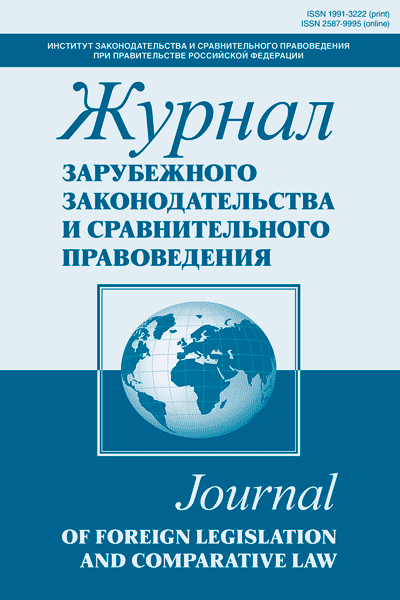The basic directions of youth policy of foreign countries, which in recent years has become one of the priority directions of the state policy in general are considered in the article. In the overall context of demographic change in the world, high unemployment among young people, negative impact on the youth of military conflicts, the radicalization of the society in the number of countries it is particularly acute vulnerability of youth part of society. Young people have to look for ways to adapt, socialize, provide a decent standard and increase quality of life. The reaction of some youth to these negative developments is the emergence of extremist youth teams, growth of alcoholism, drug abuse and youth crime that puts the state to the need for the development of an effective system of measures aimed at the prevention of these social phenomena, the protection of political, labor, social and cultural rights of young people. In foreign practice there are two basic approaches to the implementation of youth policy. The first is based on the recognition of the State’s responsibility for the successful entry of young people into society. The second approach assumes that the main emphasis in the practical implementation of youth policy, the basic grounds of which are defined by the state, should be emphasised on non-governmental organizations whose activities are carried out mainly by attracting funding from various nongovernmental sources.
Society, legislation, youth, state, program, sources, policy.
1. Domashnee nasilie po zakonodatel´stvu zarubezhnykh stran: otvetstvennost´ i preventsiya / otv. red. N. A. Golovanova. M., 2011.
2. Zelenkova M. M. Molodezhnaya politika v Rossii i zarubezhnykh stranakh. Sovremennye problemy nauki i obrazovaniya. 2012. № 6.
3. Leshchenkov F. A. Zashchita detey ot potentsial´no opasnoy informatsii v sootvetstvii s pravom Federativnoy Respubliki Germaniya. Zhurnal zarubezhnogo zakonodatel´stva i sravnitel´nogo pravovedeniya. 2015. № 2.
4. Merkulov P. A. O novykh kontseptual´nykh podkhodakh k izucheniyu istoricheskogo opyta formirovaniya gosudarstvennoy molodezhnoy politiki. Gosudarstvennaya vlast´ i mestnoe samoupravlenie. 2013. № 1.
5. Molodezhnaya politika: zarubezhnyy i otechestvennyy opyt. Analiticheskiy vestnik Soveta Federatsii Federal´nogo Sobraniya RF. 2007. № 4.
6. Otkrytoe pravitel´stvo za rubezhom: pravovoe regulirovanie i praktika / otv. red. I. G. Timoshenko. M., 2015.
7. Petrishchev V. I., Grass T. P., Alekseenko I. V. Sem´ya - institut sotsializatsii podrastayushchikh pokoleniy v Velikobritanii, SShA i v Novoy Zelandii. Sibirskiy pedagogicheskiy zhurnal. 2009. № 2.
8. Sotsial´no-molodezhnaya rabota: zarubezhnyy opyt: ucheb.-metod. posobie. M., 1997.
9. Sravnitel´noe pravovedenie: natsional´nye pravovye sistemy. T. 3: Pravovye sistemy Azii / pod red. V. I. Lafitskogo. M., 2013.
10. Tendentsii razvitiya kontrolya za deyatel´nost´yu publichnoy administratsii v zarubezhnykh gosudarstvakh / otv. red. V. I. Lafitskiy, I. G. Timoshenko. M., 2015.
11. Chursina T. I. Raspredelenie polnomochiy mezhdu Avstraliyskim Soyuzom i shtatami. Zhurnal zarubezhnogo zakonodatel´stva i sravnitel´nogo pravovedeniya. 2012. № 3.





